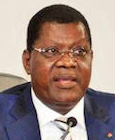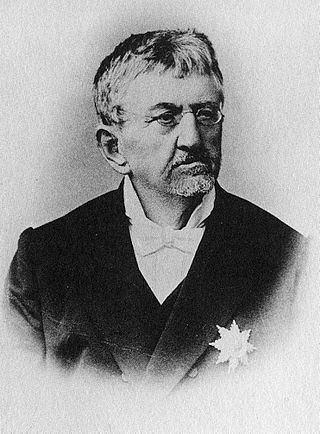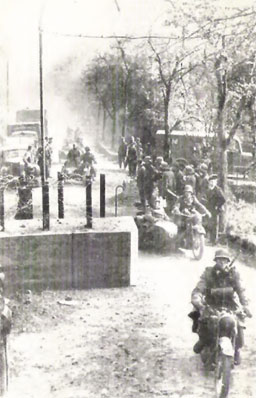Related Research Articles

Luxembourg, officially the Grand Duchy of Luxembourg, is a small landlocked country in Western Europe. It is bordered by Belgium to the west and north, Germany to the east, and France to the south. Its capital and most populous city, Luxembourg City, is one of the four institutional seats of the European Union and the seat of several EU institutions, notably the Court of Justice of the European Union, the highest judicial authority. Luxembourg's culture, people, and languages are greatly influenced by France and Germany; for example, Luxembourgish, a Germanic language, is the only national language of the Luxembourgish people and of the Grand Duchy of Luxembourg, French is the only language for legislation, and all three – Luxembourgish, German and French – are used for administrative matters in the country.

Luxembourg, also known as Luxembourg City, is the capital city of Luxembourg and the country's most populous commune. Standing at the confluence of the Alzette and Pétrusse rivers in southern Luxembourg, the city lies at the heart of Western Europe, situated 213 km (132 mi) by road from Brussels and 209 km (130 mi) from Cologne. The city contains Luxembourg Castle, established by the Franks in the Early Middle Ages, around which a settlement developed.

The Grand Duke of Luxembourg is the head of state of Luxembourg. Luxembourg has been a grand duchy since 15 March 1815, when it was created from territory of the former Duchy of Luxembourg. It was in personal union with the United Kingdom of the Netherlands until 1890 under the House of Orange-Nassau. Luxembourg is the world's only sovereign Grand Duchy and since 1815, there have been nine monarchs, including the incumbent, Henri.

Jean-Claude Juncker is a Luxembourgish politician who was the 23rd prime minister of Luxembourg from 1995 to 2013 and 12th president of the European Commission from 2014 to 2019. He also was Finance Minister from 1989 to 2009 and President of the Eurogroup from 2005 to 2013.

Gaston Egmond Thorn was a Luxembourgish politician who served in a number of high-profile positions, both domestically and internationally. Amongst the posts that he held were the 20th prime minister of Luxembourg (1974–1979), President of the United Nations General Assembly (1975), and the seventh president of the European Commission (1981–1985).

Youssouf Ouédraogo was a Burkinabé politician. In 1992 he became the first Prime Minister of Burkina Faso since 1983, serving from 16 June 1992 to 22 March 1994. Ouédraogo, a member of the ruling Congress for Democracy and Progress (CDP), later served as Minister of State for Foreign Affairs from January 1999 to June 2007.
Elections in Luxembourg are held to determine the political composition of the representative institutions of the Grand Duchy of Luxembourg. Luxembourg is a liberal representative democracy, with universal suffrage guaranteed under its constitution. Elections are held regularly, and are considered to be fair and free.

The Alternative Democratic Reform Party is a conservative and mildly populist political party in Luxembourg. It has five seats in the sixty-seat Chamber of Deputies, making it the fourth-largest party. In 2024, the party received its first seat in the European Parliament.

The Chamber of Deputies, abbreviated to the Chamber, is the unicameral national legislature of Luxembourg. The metonym Krautmaart is sometimes used for the Chamber, after the square on which the Hôtel de la Chambre is located.

Jean Asselborn is a Luxembourgish former politician who served in the government of Luxembourg as Minister for Foreign Affairs from 2004 until 2023. He also served as Deputy Prime Minister from 2004 to 2013, under Prime Minister Jean-Claude Juncker. At the time of his retirement from national politics in 2024, he consistently ranked as the most popular politician in Luxembourg, with a popularity rate of around 80%.

The Luxembourg Crisis was a diplomatic dispute and confrontation in 1867 between France and Prussia over the political status of Luxembourg.

Lambert Joseph Emmanuel Servais was a Luxembourgish politician. He held numerous offices of national importance, foremost amongst which was in serving as the fifth prime minister of Luxembourg, for seven years, from 3 December 1867 until 26 December 1874.

From August 1914 until the end of World War I on 11 November 1918, the Grand Duchy of Luxembourg was under full occupation by the German Empire. The German government justified the occupation by citing the need to support their armies in neighbouring France, although many Luxembourgers, past and present, have interpreted German actions otherwise.

The Ministry of Foreign Affairs is a ministry of the government of Luxembourg, headquartered in the Bâtiment Mansfeld in Luxembourg City.

The Constitution of Luxembourg is the supreme law of the Grand Duchy of Luxembourg. The modern constitution was adopted on 17 October 1868.
The seven institutions of the European Union (EU) are seated in four different cities, which are Brussels (Belgium), Frankfurt am Main (Germany), Luxembourg (Luxembourg) and Strasbourg (France), rather than being concentrated in a single capital city. All four were chosen, among various reasons, for their location halfway between France and Germany, the countries whose rivalry led to two World Wars and whose reconciliation paved the way for European integration. The EU agencies and other bodies are located all across the union, but usually not fixed in the treaties. The Hague is the only exception, as the fixed seat of the Agency for Law Enforcement Cooperation (Europol). Luxembourg City is the EU capital that can lay claim to having the most of the seven EU institutions based wholly or partly upon its territory, with only the European Council and European Central Bank not having a presence in the city. Over the years, Brussels has become the EU's political hub, with the College of the Commissioners – the European Commission's politically accountable executive – and the European Council both meeting at their Brussels-based headquarters, and the European Parliament and Council of the EU holding the majority of their meetings annually within the city. This has led media to describe it as the de facto "capital of the EU".
The following lists events that happened during 2009 in the Grand Duchy of Luxembourg.

Xavier Bettel is a Luxembourgish lawyer and politician who serves as the 14th deputy prime minister of Luxembourg and as the minister for Foreign Affairs since 2023. He served as the 24th prime minister of Luxembourg from 2013 to 2023. He was a member of the Chamber of Deputies (1999–2013) and Mayor of Luxembourg City (2011–2013).

Luxembourg competed at the 2012 Summer Olympics in London, from 27 July to 12 August 2012. The Luxembourg Olympic and Sporting Committee sent a delegation of nine athletes to the event—five men and four women—who competed in 7 sports.

The German invasion of Luxembourg was part of Case Yellow, the German invasion of the Low Countries—Belgium, Luxembourg and the Netherlands—and France during World War II. The battle began on 10 May 1940 and lasted just one day. Facing only light resistance, German troops quickly occupied Luxembourg. The Luxembourgish government, and Grand Duchess Charlotte, managed to escape the country and a government-in-exile was created in London.
References
- ↑ MEMORIAL: Journal Officiel du Grand-Duché de Luxembourg, B N° 4 17 January 2008, p 7 (in French)